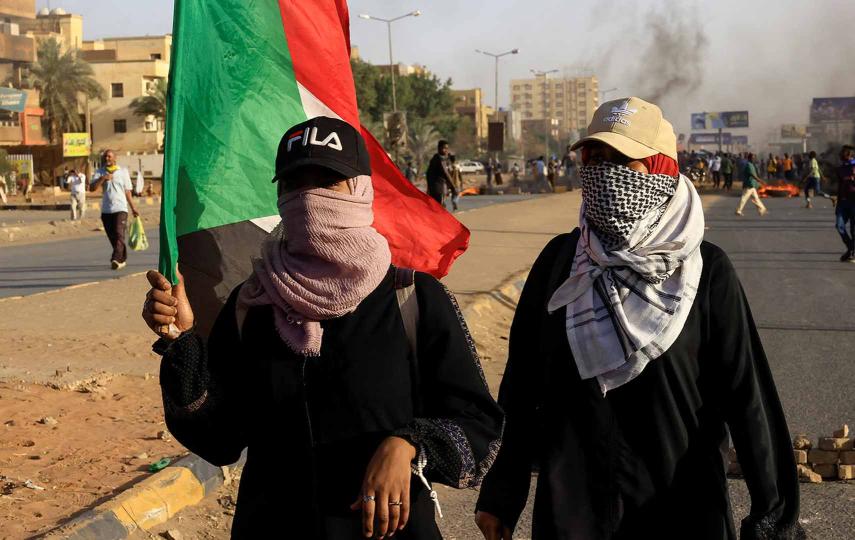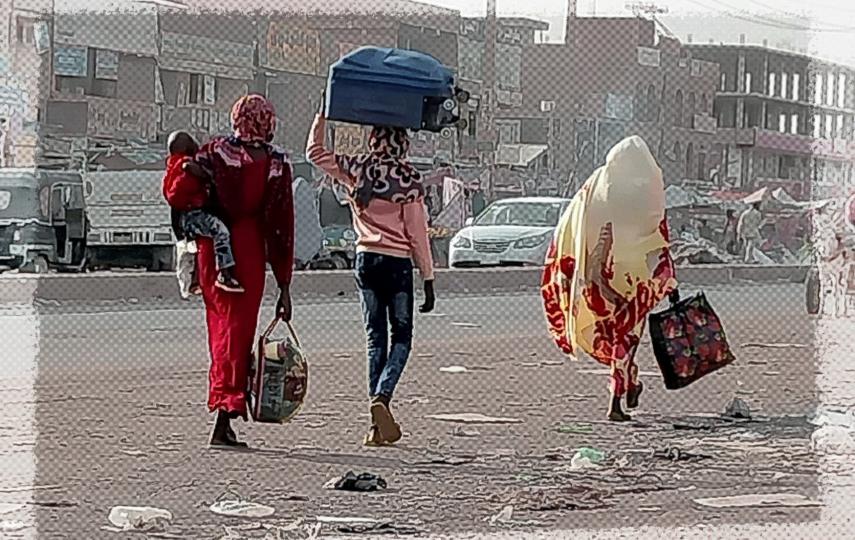Earlier this week, a high-level pledging conference for the humanitarian response in Sudan and the region, saw countries step forward and collectively commit nearly $1.5 billion.
Those pledges are generous, yet they total only half of what the UN estimates is required to address humanitarian needs in the country and its neighbours. It is too little given the sheer scale of the catastrophe that is unfolding.
It is my hope that the commitments made by donors – who were gathering in Geneva – will be delivered, and that they are only the beginning. The international community needs to stay focused on Sudan, even as the conflict starts to fade from the headlines.
For our part, humanitarian organisations also need to support and scale up local initiatives, working with people who stayed and delivered in the country amid a vacuum of international support.
Meanwhile, donors must call out the bureaucratic red tape that authorities have placed on our work and demand their end. Right now, blatant restrictions on entry into Sudan for humanitarian workers and aid supplies are leaving millions in need stranded.
‘The bombs kept falling and the walls kept shaking’
Sudan’s war began on 15 April and pits the Rapid Support Forces paramilitary group against the regular army. The fighting has displaced an estimated 2.2 million people and left 24.7 million – more than half the population – in need of assistance.
“The children stayed under their beds, but a bullet crossed into the wall a few inches from them."
The capital, Khartoum, and major cities in the regions of Darfur and Kordofan have been turned into brutal battlefields. Entire settlements and neighbourhoods lie in ruins, as air raids, rampant pillaging, and rape consume the lives of civilians.
Ceasefire agreements have mostly been disregarded – especially in Darfur – and the messy conflict is further compounded by a near-total macro-economic and monetary failure, and by a collapsing state.
"The bombs kept falling and the walls kept shaking,” a displaced person and parent from Khartoum told me recently. “The children stayed under their beds, but a bullet crossed into the wall a few inches from them."
I met the displaced person in White Nile state. Despite being hundreds of kilometres south of the capital, they said their children still can’t sleep peacefully.
The funding shortfall in Geneva stands in stark contrast to the tireless courage of ordinary Sudanese who are providing refuge and sustenance to families who fled the horrors of the war, often putting the needs of others before themselves.
Despite fleeing their homes, Sudanese aid workers – at my organisation and others – have also stood at the forefront of the emergency response, ready to contribute and make a difference.
‘Horrifying tales’ from Darfur
In honour of those who have opened their doors to those in need, the international community now needs to do its part, starting with properly supporting and funding the humanitarian response.
International and regional bodies must also strongly condemn, at the highest levels, the blatant violations of international humanitarian law that are ongoing. Parties to the conflict need to be put on notice.
Special attention must also be placed on the situation in Darfur, which is Sudan’s westernmost region and has faced major strife since the mass atrocities in the early 2000s.
Our teams in Darfur have been unreachable for weeks due to a communication blackout, but the few colleagues who managed to cross to neighbouring Chad have shared horrifying tales of daily fighting, shelling, and home raids.
What we had dreaded since the 2021 departure of the UN-African Union peacekeeping mission from the region is now unfolding in the state of West Darfur: deliberate, large-scale, and ethnically-targeted attacks on civilians.
Make no mistake, Darfur’s darkest chapter was never really closed. We are now teetering on the precipice of potential mass atrocities that could repeat Sudan's harrowing past.
Barriers to aid
For aid agencies to do our job, we need to move closer to the communities we serve. After evacuating from Khartoum, much of the international aid response has been coordinated and channelled through Port Sudan.
But this eastern city on the Red Sea is over 2,000 kilometres from some of the worst-affected parts of the country. We need to create new hubs across Sudan and ensure aid is making its way to those in need.
We also need donors to speak out against the bureaucratic obstacles that are impeding humanitarian relief. Visas are currently being restricted for international aid workers, which limits what we are able to do on the ground.
Authorities are also imposing Port Sudan as the single port of entry for relief supplies. This means humanitarian aid is entering into an area exclusively controlled by one side of the conflict.
Sudan’s war is barely two months old, yet international fatigue and neglect are already brewing. The world must instead keep its eyes open and strengthen its commitments to the Sudanese people. The choice is ours, and history will judge us accordingly.

